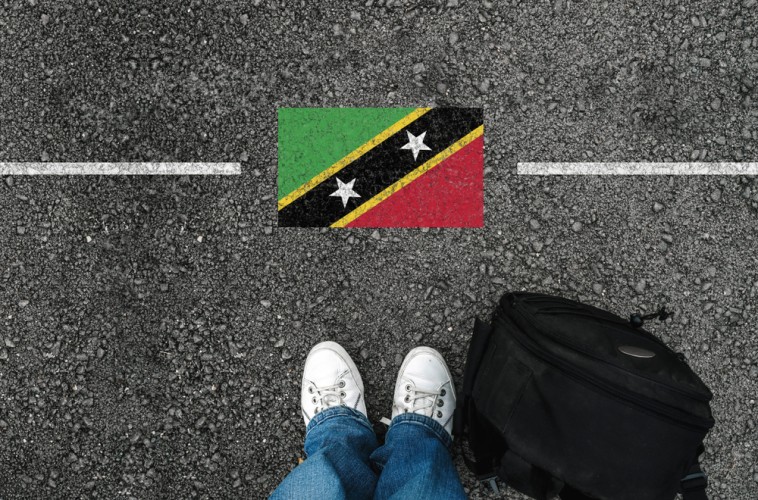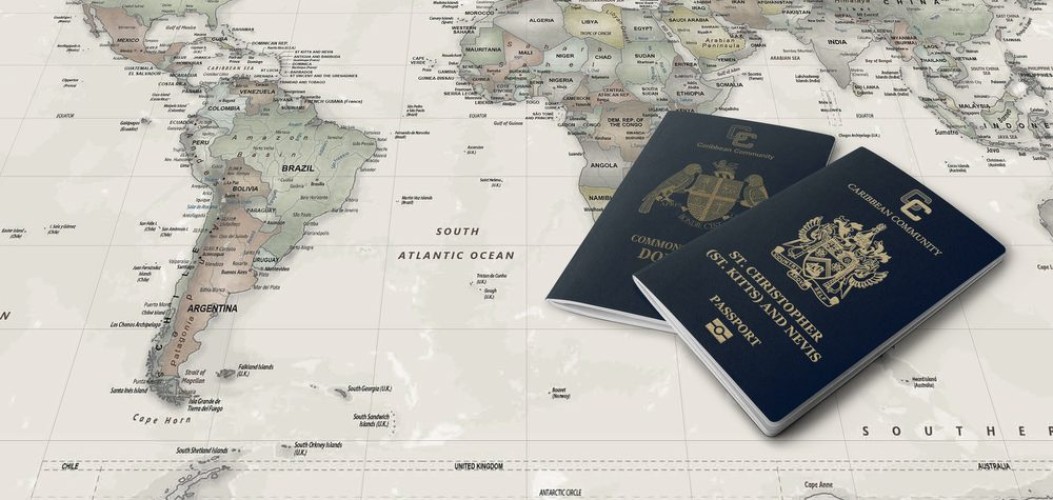Saint Lucia’s financial ecosystem boasts a cutting-edge banking infrastructure governed by rigorous international standards. Oversight falls jointly to the Eastern Caribbean Central Bank (ECCB) and the national Financial Services Regulatory Authority, enforcing robust anti-fraud protocols and capital adequacy mandates. The Eastern Caribbean Dollar (XCD), fixed at EC$2.70 per US dollar, serves as legal tender, though USD circulates freely in tourist corridors. Twelve licensed entities operate nationally, blending domestic powerhouses with offshore specialists. All deliver advanced digital portals supporting multi-currency accounts and real-time EC transactions, cementing the island’s status as a premier Caribbean banking hub.
Overview of the banking system in St. Lucia
The financial framework of this country is based on rigorous supervision. The ECCB monitors both monetary policy and liquidity and securities portfolios, ensuring that banks have sufficient capital reserves. In addition, St. Lucia’s internal regulators are acting as a separate authority, scrutinizing each banking operation to demonstrate their understanding of the customer. This double-check ensures the nation’s reputation for stability, which is especially cherished by foreign depositors.
Enhanced security features like two-factor authentication and card-freezing capabilities via app are standard. This tech-forward approach allows seamless account management globally — a boon for non-resident investors and citizenship-by-investment holders.
- Currency flexibility. Hold accounts in XCD, USD, EUR, GBP, CAD, or CNY.
- Regulatory compliance. Adherence to CRS (Common Reporting Standard) and FATCA ensures transparency.
- Remote operations. Open accounts digitally with select banks, though requirements vary.
While offshore banking thrives, St. Lucia’s adherence to international cooperation frameworks means automatic information exchange with treaty partners. Privacy remains respected within legal bounds, attracting investors seeking asset diversification without opacity risks.
Major banks operating in St. Lucia
The financial sector of St. Lucia is well-developed and plays a central role in supporting both the local economy and the growing community of international investors, expatriates, and entrepreneurs. The island hosts several reputable banks that provide a wide range of services, from personal and business accounts to international banking, investment products, and digital financial solutions. For individuals considering relocation, investment, or simply managing their assets abroad, understanding which banks operate in St. Lucia and what they offer is essential. We highlight the major banks that serve residents and foreign clients alike.
Bank of Saint Lucia (BoSL)
As the territory’s foremost indigenous commercial bank, BoSL emerged from a landmark 2001 consolidation. Its 11 physical branches—strategically positioned from Castries to Vieux Fort—anchor the most extensive ATM network island-wide (42 terminals). Beyond standard personal and corporate offerings, BoSL pioneers microfinance programs for agro-exporters and maintains a dedicated offshore division in Rodney Bay. The institution waives monthly fees for EC dollar accounts while charging US$5 for USD holdings.
1st National Bank St. Lucia
Tracing origins to 1938, this community-focused entity prioritizes retail accessibility through seven branches, including a Hewanorra International Airport currency desk. Its “Agri-Plus” initiative provides seasonal credit lines to farmers at 5% interest. While personal accounts feature no minimum balance, business clients pay EC$50 monthly. The bank’s proprietary mobile app processes loan repayments instantly but lacks integrated forex trading.
Republic Bank (St. Lucia) Limited
Following its 2019 acquisition of Scotiabank’s Lucia operations, this Trinidadian-owned giant dominates corporate finance. Three branches serve enterprises with syndicated loans exceeding EC$10 million and supply-chain financing solutions. High-net-worth clients access preferential USD account rates and Barbados/Trinidad banking corridors. Republic leads in commercial innovation with AI-driven cash-flow forecasting tools for hoteliers.
Hermes Bank
Operating under an international banking license, Hermes specializes in non-resident wealth management via a singular Castries office. Its hallmark “Global Portfolio” accounts hold 12 currencies and integrate directly with brokerage platforms like Interactive Brokers. Unlike competitors, Hermes eschews physical cards and ATMs entirely—transactions occur exclusively through encrypted online portals and SWIFT wires, appealing to digitally nomadic investors.
Services offered by St. Lucian banks
From everyday retail banking to complex international financial solutions, St. Lucia’s banks provide comprehensive services:
- Personal & Business Accounts. Open a bank account in st lucia in XCD or 15+ foreign currencies. Minimum deposits range from $100 (1st National) to €1,000 (Hermes). Expect monthly fees between $5 and €15.
- Loans and Credit. Mortgages, SME financing, and project-specific credit lines are accessible, though requirements include collateral and income verification.
- Digital Tools. Apps like BoSL’s enable card controls, SMS alerts, and mobile check deposits. Corporate clients use APIs for treasury management.
For businesses, merchant services, trade finance, and international wire transfers (costing $25–€30 per transaction) streamline operations. Offshore specialists like Hermes offer discretionary investment portfolios and trust services under St. Lucia’s favorable tax framework — no capital gains, inheritance, or wealth taxes apply. Documentation requirements differ by client type:
- Passport, proof of address (utility bill), income verification (employment letter/bank statements), tax ID, and a reference letter from another bank.
- Certificate of Incorporation, Articles of Association, Register of Directors/Shareholders, and beneficiary disclosures.
The best banks in st lucia balance cost, convenience, and specialization — whether you seek hyper-local accessibility (1st National), scale (BoSL), international reach (Republic), or offshore efficiency (Hermes).
How to open a bank account in St. Lucia
Essential steps for successful application:
- Select a bank matching your profile (retail, corporate, or offshore).
- Submit certified identification and address verification.
- Provide reference letters from existing banking relationships.
- Complete KYC forms detailing account purpose and funding sources.
- Deposit minimum funds after preliminary approval.
Processing takes 5-10 business days for residents and up to three weeks for non-residents. Most banks waive initial fees for personal accounts, while business accounts incur setup charges. The proven approach includes consulting bank websites for jurisdiction-specific requirements before applying. To open a bank account in St Lucia, prepare EC$500+ for local currency options or US$1,000 for multi-currency accounts.
Online and mobile banking options
St. Lucian banks prioritize digital accessibility, offering robust platforms for international clients. Bank of Saint Lucia (BoSL) leads with its app, enabling check deposits via camera, real-time transfers through the Eastern Caribbean Automated Clearing House (ECACH), and card-freezing capabilities. Republic Bank’s platform supports bulk payroll processing and API integrations for corporate treasury management, though transaction limits apply ($5,000/day for new users).
1st National Bank balances functionality with user experience: its mobile interface features customizable payment templates and low-balance alerts but lacks regional EFT support. Common challenges include delayed synchronization during peak hours (noted at Republic Bank) and restricted currency conversion options in apps. Most banks offer 24/7 English-speaking support; Hermes adds Russian-language assistance via its Moscow liaison office.
Sustainable Banking Initiatives
St. Lucian financial institutions increasingly prioritize environmental and social governance (ESG), integrating sustainability into core operations. Bank of Saint Lucia pioneered green financing with discounted loans for solar installations and energy-efficient construction. Meanwhile, Republic Bank’s “ECOCare” program allocates 0.5% of credit card revenues to coral reef restoration. These institutions partner with local agro-processors through low-interest commercial lending for organic farming equipment, reducing import dependency.
The Eastern Caribbean Central Bank incentivizes climate resilience via preferential liquidity ratios for ESG-compliant banks. 1st National now issues sustainability-linked bonds funding geothermal projects near Soufrière, while its Castries headquarters operates entirely on renewable energy. Such initiatives position Lucia as a Caribbean leader in ethical finance, attracting impact investors seeking alignment with UN Sustainable Development Goals.
Fees and charges associated with banking
Understanding fee structures is critical for cost-effective account management in St. Lucia. Below is a comparative overview:
| Service | Bank of Saint Lucia | 1st National Bank | Hermes Bank |
| Monthly maintenance | $5 (personal), $7.5 (business) | $7.5 | €15 |
| Account opening | Free | $50 | €300/€550* |
| Outbound SWIFT | $25 | $30 | 0.15% (min €10) |
| Inbound transfers | $5 (≤$1,000) | $7 | €5 (≤€1,000) |
| Int’l ATM withdrawal | 2% of amount | $5 + 2% | 2% (min €2.5) |
| Currency conversion | 1.5% | 1.8% | 0.7% |
Cost-saving strategies:
- Opt for bundled packages. BoSL’s corporate clients get five fee-free transfers monthly.
- Use online Republic Bank discounts EFT fees by 30% for digital-initiated transactions.
- Avoid hidden charges. Balance inquiries at non-network ATMs cost $0.75 at 1st National Bank; Hermes imposes €20 for card PIN regeneration.
- Note minimum balances. Falling below $500 in Republic Bank savings accounts triggers a $15 penalty.
Corporate accounts incur higher baseline fees but offer scalability. Hermes Bank waives incoming wire fees for deposits >€50,000, while Bank of Saint Lucia charges no inactivity penalties.
Regulatory Framework and Compliance
St. Lucia’s banking sector operates under a dual regulatory system supervised by the Eastern Caribbean Central Bank (ECCB) and the nation’s Financial Services Regulatory Authority. This robust framework ensures adherence to international standards, including Basel III accords and FATF anti-money laundering directives. All commercial banks must maintain capital adequacy ratios exceeding 12% – well above the ECCB’s 8% minimum. The jurisdiction enforces strict KYC (Know Your Customer) protocols, requiring banks to verify account holder identities through biometric data and cross-border documentation checks.
Recent regulatory enhancements focus on cybersecurity mandates, compelling banks to implement real-time transaction monitoring systems and encrypted data storage. The EC dollar’s fixed peg to the US dollar (EC$2.70 = US$1) provides additional monetary stability. Offshore banking entities face heightened scrutiny, with mandatory quarterly audits by the International Regulatory Board. These measures fortify Lucia’s reputation while ensuring depositor protection through the ECCU’s guarantee scheme covering accounts up to EC$100,000. Compliance costs contribute to higher services fees but position St Lucia as one of the Caribbean’s most secure jurisdictions.
Hospitality Sector Financial Solutions
Banks tailor specialized products for Lucia’s tourism-driven economy, which generates 65% of GDP. Republic Bank St Lucia offers “Tourism Boost” lines of credit with 6-month repayment holidays during low seasons. 1st National Bank provides revenue-based financing where boutique hotels repay loans via fixed percentages of monthly bookings. Unique solutions include:
- EC dollar-denominated merchant services with dynamic currency conversion for international guests.
- Equipment leasing for dive operators with hurricane-damage clauses.
- Point-of-sale financing enabling restaurants to upgrade kitchens interest-free for 24 months.
- Villa construction loans disbursed against phased architect certifications.
These sector-specific approaches help resorts navigate volatile demand while maintaining country-wide employment stability. Bank risk models incorporate AI-driven tourism forecasts from the Saint Lucia Tourism Authority.
St. Lucia’s banking system merges regulatory rigor with international accessibility, serving diverse needs—from everyday retail transactions to sophisticated offshore wealth management. Digital transformation has elevated user convenience, though fee structures vary significantly across institutions. When selecting a provider, align priorities: 1st National Bank excels in local accessibility, Republic Bank in cross-border efficiency, and Hermes Bank in non-resident specialization.






